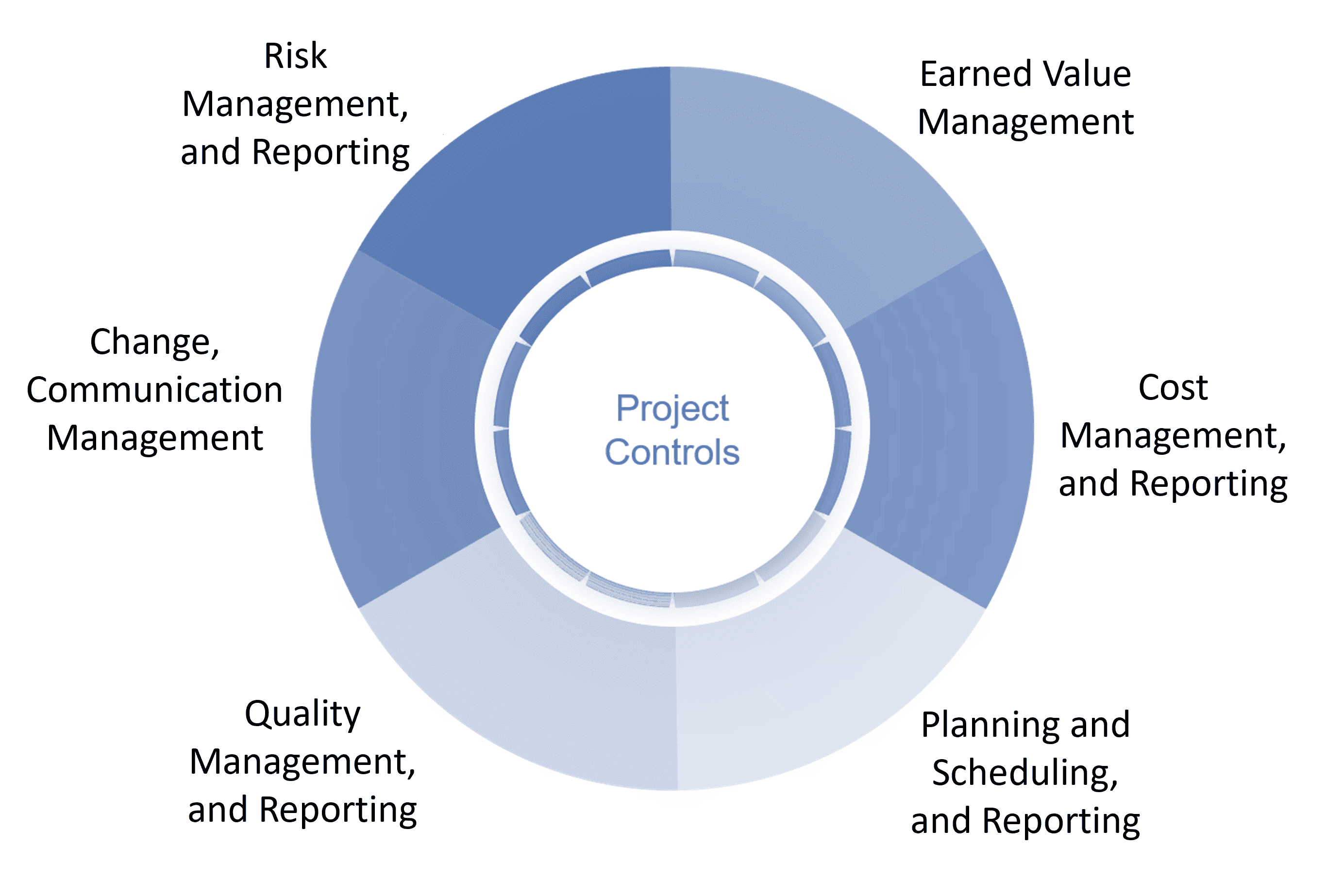Services | Project Controls
Project Controls Services
Deployment of Qualified Staff
Project controls is a set of processes, tools, and techniques used to monitor, manage, and report on a project’s performance, ensuring that it meets its objectives in terms of scope, schedule, cost, quality, and risk management. The main goal of project controls is to provide project managers and stakeholders with accurate, timely information to support informed decision-making and maintain control over the project’s execution.
Project controls encompass several key aspects, including
Planning and Scheduling: Developing a comprehensive project plan that outlines the project’s scope, objectives, and schedule, including milestones, activities, and dependencies. This plan serves as the foundation for tracking progress and managing the project’s schedule.
Cost Management: Estimating, budgeting, and controlling project costs to ensure that the project stays within the approved budget. This includes tracking actual costs, comparing them to the budget, and implementing corrective actions to address any deviations from the plan.
Earned Value Management (EVM): Integrating scope, schedule, and cost data to assess project performance and progress. EVM provides a set of performance metrics that enable project managers to identify deviations from the plan and implement corrective actions to maintain control over the project’s execution.
Risk Management: Identifying, analyzing, and mitigating potential risks that may impact the project’s objectives. This includes establishing a risk register, conducting risk assessments, and implementing risk mitigation strategies to minimize the impact of risks on the project’s success.
Quality Management: Ensuring that the project’s deliverables meet the required quality standards and satisfy stakeholder expectations. This involves setting quality objectives, implementing quality assurance and control processes, and conducting regular quality audits and inspections.
Change Management: Managing changes to the project’s scope, schedule, or budget, as well as addressing any issues that may arise during the project’s execution. This includes evaluating change requests, assessing their impact on the project, and implementing approved changes in a controlled manner.
Reporting and Communication: Providing regular updates on the project’s status and performance to stakeholders, ensuring that they are informed of any changes or issues that may impact on the project’s objectives. This includes developing and maintaining project performance reports, dashboards, and other communication tools.

Project controls play a critical role in the successful execution of projects, as they enable project managers to maintain control over the project’s performance and make informed decisions based on accurate, timely information. By implementing effective project controls, organizations can improve their project management capabilities, reduce risks, and enhance the likelihood of project success.
Let’s get in touch
